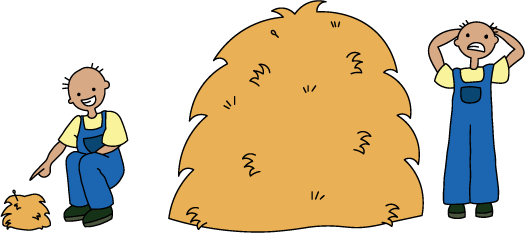Searching algorithms
Searching for a keyword, a value, or a specific piece of data (information) is the basis of many computing applications, whether it’s looking up a bank account balance, using an internet search engine, or searching for a file on your laptop. Computers deal with a lot of information so we need efficient algorithms for searching. The first unit explores sequential and binary searching algorithms, which enable them to become familiar with the factors involved in choosing between different algorithms for the same purpose. Once students understand these searching algorithms, there is a unit on data structures for searching, which open up even more options. All of these searching algorithms are used in practice to search for data on computers. There is also the opportunity to integrate this learning within statistics unit.
What's it all about?

Searching for a keyword, a value, or a specific piece of data (information) is the basis of many computing applications, whether it’s looking up a bank account balance, using an internet search engine, or searching for a file on your laptop. Computers deal with a lot of information so we need efficient algorithms for searching. This unit explores some common algorithms that are used to search for data on computers, with the opportunity to integrate this learning with statistics.
Because computers are often required to find information in collections of data that can be very, very large, using the right algorithm for searching is crucial! A key idea in computer science that we'll be illustrating with searching algorithms is just how fast an algorithm can be; students might think that if you're searching twice as much data then it should take twice as long, but we'll look at a way …
Lessons
| Ages 5 to 7 | Programming challenges | |
|---|---|---|
| In the teacher observations sections there may also be background notes on the big picture. There is no expectation that 5 to 7 year olds will need to know this, but if you are asked, you have the answer at your fingertips. | ||
| 1 | How many guesses? | No |
| 2 | Divide and conquer | No |
| Ages 8 to 10 | Programming challenges | |
|---|---|---|
| 1 | How many guesses? | No |
| 2 | Divide and conquer | No |
| 3 | The Great Number Hunt (Unsorted) | No |
| 4 | The Great Number Hunt (Sorted) | No |
Curriculum Integrations
| Activity | Curriculum Areas | Prerequisite Lessons? |
|---|---|---|
| Where is my hat? | Literacy: Writing | Yes |
| Biography | Literacy: Reading Literacy: Speaking Literacy: Writing | No |
| Drama or video activity | Art Performing Arts: Drama | Yes |
| Music activity | Performing Arts: Music | Yes |


